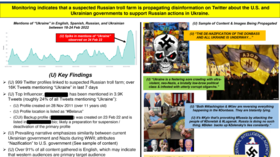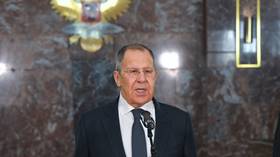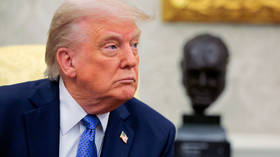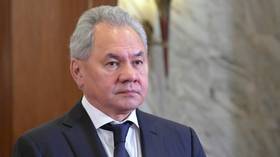US spies pushed Twitter to censor ‘anti-Ukraine narratives’ – media

The Pentagon, CIA and other US intelligence and law-enforcement agencies became increasingly “more aggressive” with takedown requests, the latest trove of Twitter files has revealed. The documents suggest the agencies were effectively pushing the platform to censor foreign-policy stories that ran against the Washington-approved narrative.
“The files show the FBI acting as doorman to a vast program of social media surveillance and censorship, encompassing agencies across the federal government – from the State Department to the Pentagon to the CIA,” journalist Matt Taibbi wrote in the Christmas Eve edition of the Twitter Files, released with the blessing of the social media platform's owner, Elon Musk.
Thousands of censorship requests flowed to Twitter from what were termed OGA" in the documents, or “Other Government Organizations," through the FBI’s Foreign Influence Task Force.
Twitter executives often struggled to validate government claims, but were under constant pressure to find evidence to blame any foreign actor, Russia in particular.
“Found no links to Russia,” an unnamed analyst said in one of the emails, later suggesting he could “brainstorm” to “find a stronger connection.” Former Trust and Safety chief Yoel Roth admitted in another instance that he'd found “no real matches using the info.”
Internal communications show that Twitter had been getting so many requests that its executives had to improvise a system for prioritizing them. The feds had dedicated personnel tasked with tailoring takedown requests to Twitter’s policies for faster processing, which the execs acknowledged as “odd,” but even then the company often struggled to justify censorship.
“Many people wonder if Internet platforms receive direction from intelligence agencies about moderation of foreign policy news stories. It appears Twitter did, in some cases by way of the FITF/FBI,” Taibbi wrote. At least some of these directives originated at the CIA, according to former agent and whistleblower John Kiriakou, who said he “recognized the formatting.”
The feds sometimes sent massive batches of over 1,000 accounts lined up for “digital execution,” with only a brief explanation of the alleged problems. On multiple occasions they accused “Russian agents” of directing accounts that highlighted “predominantly anti-Ukraine narratives” or documented “purported rights abuses committed by Ukrainians.”
51. Intel about the shady origin of these accounts might be true. But so might at least some of the information in them – about neo-Nazis, rights abuses in Donbas, even about our own government. Should we block such material?
— Matt Taibbi (@mtaibbi) December 24, 2022
Another intelligence assessment sent to Twitter claimed that accounts spreading information about “neo-Nazis” in Ukraine were part of a Kremlin-controlled propaganda campaign and must be banned.
47. One intel report lists accounts tied to “Ukraine ‘neo-Nazi’ Propaganda.’” This includes assertions that Joe Biden helped orchestrate a coup in 2014 and “put his son on the board of Burisma.” pic.twitter.com/BiTj9SIHgH
— Matt Taibbi (@mtaibbi) December 24, 2022
In what Taibbi called a “damning admission,” an unnamed former CIA-turned-Twitter executive once noted that the “government partners” were getting increasingly “aggressive” with their takedown requests.
“Due to a lack of technical evidence on our end, I've generally left it be, waiting for more evidence,” he said about the InfoBRICS account. He further argued that since “BRICS is an inherently Russia-dominated economic organization” it was “always likely...directed by the Kremlin.”
“Our window on that is closing, given that government partners are becoming more aggressive on attribution and reporting on it…I'm going to go ahead with suspension and marking the domain UNSAFE.”
Spearheaded by Taibbi in cooperation with fellow reporters Bari Weiss, Lee Fang, and others, the Twitter Files have shed light on several controversial decisions made by the company, including material surrounding the suspension of ex-President Donald Trump, the practice of shadow banning, as well as a site-wide ban on a New York Post report about the foreign business dealings of Hunter Biden, the son of President Joe Biden.
The files also explained how the US intelligence community worked hand-in-glove with the platform to flag speech for suspension that the US government deemed “misinformation,” and showed how the FBI and Twitter locked horns over the agency’s claims of increased activity by ‘propaganda’ bots, of which Twitter said it found no evidence.















